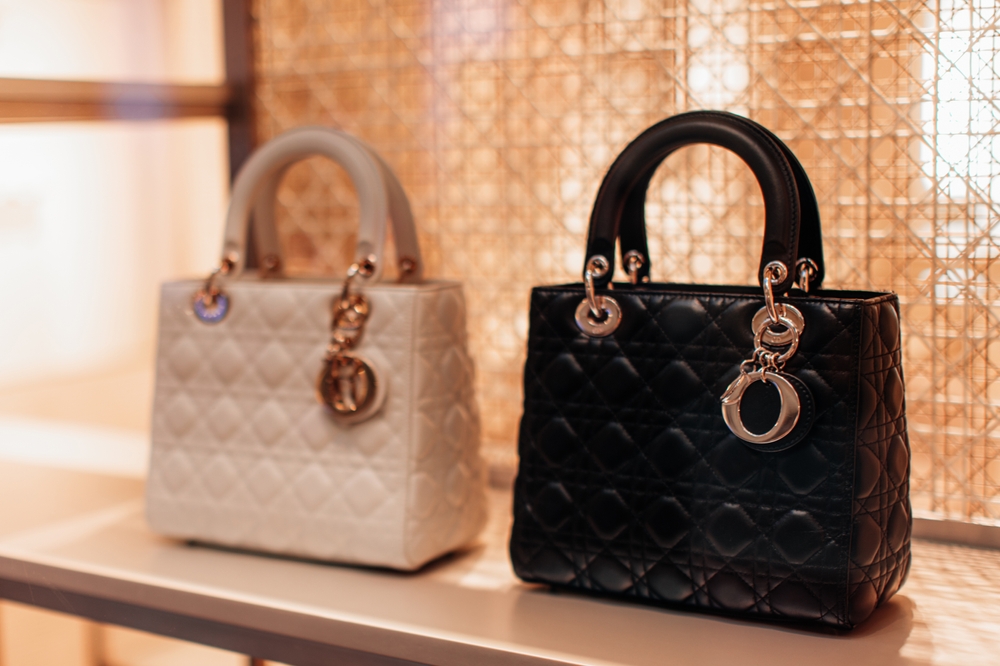The Lipstick Index Is Back
Sales of the cosmetic product are a bright spot in an otherwise bleak discretionary-goods environment
Masks off, lipstick index on.
In a gloomy economy, consumers might cut back on other discretionary purchases but will keep shelling out for small luxuries such as lipstick—or so goes the theory. “When lipstick sales go up, people don’t want to buy dresses,” Leonard Lauder, then-chairman of Estée Lauder who is widely credited for coming up with the so-called “lipstick index,” told The Wall Street Journal in 2001.
L’Oréal Chief Executive Nicolas Hieronimus called this out during the company’s earnings call in October, noting that a luxury lipstick or mascara is only €30, making it an “affordable treat.” Sales at L’Oréal rose 9.1% in the third quarter compared with a year earlier despite slower sales in China due to Covid-related lockdowns. Coty, maker of CoverGirl makeup, said organic sales grew 9% over the same period.
Beauty sales have also been a rare bright spot for retailers: Target said beauty category sales grew roughly 15% in its quarter ended Oct. 29 compared with a year earlier, with Ulta Beauty shops in Target tripling their total sales volume over that period.
While Macy’s namesake stores saw comparable-store sales decline last quarter, its beauty-focused Bluemercury chain saw same-store sales grow 14% last quarter compared with a year earlier. Kohl’s locations with Sephora are outperforming the rest of the department-store chain.
Of the 14 discretionary categories that market research firm NPD Group tracks, prestige beauty—products you might find at a department store or a Sephora—is the only category that is seeing unit sales growth year to date. And lipstick, which suffered during the masked-up pandemic, is making up for lost time.
Lipstick sales have grown 37% through October this year compared with a year earlier, according to Larissa Jensen, beauty industry analyst at NPD Group. That is an acceleration from the 31% growth seen during the same period last year. Lip product is the only major category within prestige beauty where sales are actually up compared with pre-pandemic levels, according to Ms. Jensen.
Cosmetic companies have also called out strong sales in fragrances, calling it the “fragrance index.” Demand has been so robust that there is an industrywide fragrance component shortage, Coty said in a press release announcing third-quarter earnings earlier this month. CEO Sue Nabi said during the call that Coty hasn’t seen any kind of trade-down or slowdown, also noting that consumers are shifting away from gifting perfume to buying it for themselves.
“A big piece of it is just a shift in what wellness means to consumers,” NPD Group’s Ms. Jensen said. “Beauty is one of the few industries that are positioned to meet [consumers’] emotional need. It makes them feel good.”
While the lipstick effect could be observed in the recession in the early 2000s, that wasn’t the case during the 2007-09 recession, during which lipstick sales declined alongside other discretionary purchases. Part of this might have had to do with category-specific dynamics.
There was a lot of newness in the cosmetic industry in 2001, including lip gloss, a relatively nascent category back then. That tailwind simply wasn’t there starting in 2008, though nail polish turned out to be consumers’ small indulgence of choice in that period. This time around, consumers may be eager to show off a part of their face that was hidden behind a mask for so long during the pandemic.
In an otherwise bleak environment for companies selling discretionary goods, those in the business of selling cosmetics look well poised to come out of the holiday season looking freshened up.
 Copyright 2020, Dow Jones & Company, Inc. All Rights Reserved Worldwide. LEARN MORE
Copyright 2020, Dow Jones & Company, Inc. All Rights Reserved Worldwide. LEARN MORE
This stylish family home combines a classic palette and finishes with a flexible floorplan
Just 55 minutes from Sydney, make this your creative getaway located in the majestic Hawkesbury region.
As Paris makes its final preparations for the Olympic games, its residents are busy with their own—packing their suitcases, confirming their reservations, and getting out of town.
Worried about the hordes of crowds and overall chaos the Olympics could bring, Parisians are fleeing the city in droves and inundating resort cities around the country. Hotels and holiday rentals in some of France’s most popular vacation destinations—from the French Riviera in the south to the beaches of Normandy in the north—say they are expecting massive crowds this year in advance of the Olympics. The games will run from July 26-Aug. 1.
“It’s already a major holiday season for us, and beyond that, we have the Olympics,” says Stéphane Personeni, general manager of the Lily of the Valley hotel in Saint Tropez. “People began booking early this year.”
Personeni’s hotel typically has no issues filling its rooms each summer—by May of each year, the luxury hotel typically finds itself completely booked out for the months of July and August. But this year, the 53-room hotel began filling up for summer reservations in February.
“We told our regular guests that everything—hotels, apartments, villas—are going to be hard to find this summer,” Personeni says. His neighbours around Saint Tropez say they’re similarly booked up.
As of March, the online marketplace Gens de Confiance (“Trusted People”), saw a 50% increase in reservations from Parisians seeking vacation rentals outside the capital during the Olympics.
Already, August is a popular vacation time for the French. With a minimum of five weeks of vacation mandated by law, many decide to take the entire month off, renting out villas in beachside destinations for longer periods.
But beyond the typical August travel, the Olympics are having a real impact, says Bertille Marchal, a spokesperson for Gens de Confiance.
“We’ve seen nearly three times more reservations for the dates of the Olympics than the following two weeks,” Marchal says. “The increase is definitely linked to the Olympic Games.”

Getty Images
According to the site, the most sought-out vacation destinations are Morbihan and Loire-Atlantique, a seaside region in the northwest; le Var, a coastal area within the southeast of France along the Côte d’Azur; and the island of Corsica in the Mediterranean.
Meanwhile, the Olympics haven’t necessarily been a boon to foreign tourism in the country. Many tourists who might have otherwise come to France are avoiding it this year in favour of other European capitals. In Paris, demand for stays at high-end hotels has collapsed, with bookings down 50% in July compared to last year, according to UMIH Prestige, which represents hotels charging at least €800 ($865) a night for rooms.
Earlier this year, high-end restaurants and concierges said the Olympics might even be an opportunity to score a hard-get-seat at the city’s fine dining.
In the Occitanie region in southwest France, the overall number of reservations this summer hasn’t changed much from last year, says Vincent Gare, president of the regional tourism committee there.
“But looking further at the numbers, we do see an increase in the clientele coming from the Paris region,” Gare told Le Figaro, noting that the increase in reservations has fallen directly on the dates of the Olympic games.
Michel Barré, a retiree living in Paris’s Le Marais neighbourhood, is one of those opting for the beach rather than the opening ceremony. In January, he booked a stay in Normandy for two weeks.
“Even though it’s a major European capital, Paris is still a small city—it’s a massive effort to host all of these events,” Barré says. “The Olympics are going to be a mess.”
More than anything, he just wants some calm after an event-filled summer in Paris, which just before the Olympics experienced the drama of a snap election called by Macron.
“It’s been a hectic summer here,” he says.

AFP via Getty Images
Parisians—Barré included—feel that the city, by over-catering to its tourists, is driving out many residents.
Parts of the Seine—usually one of the most popular summertime hangout spots —have been closed off for weeks as the city installs bleachers and Olympics signage. In certain neighbourhoods, residents will need to scan a QR code with police to access their own apartments. And from the Olympics to Sept. 8, Paris is nearly doubling the price of transit tickets from €2.15 to €4 per ride.
The city’s clear willingness to capitalise on its tourists has motivated some residents to do the same. In March, the number of active Airbnb listings in Paris reached an all-time high as hosts rushed to list their apartments. Listings grew 40% from the same time last year, according to the company.
With their regular clients taking off, Parisian restaurants and merchants are complaining that business is down.
“Are there any Parisians left in Paris?” Alaine Fontaine, president of the restaurant industry association, told the radio station Franceinfo on Sunday. “For the last three weeks, there haven’t been any here.”
Still, for all the talk of those leaving, there are plenty who have decided to stick around.
Jay Swanson, an American expat and YouTuber, can’t imagine leaving during the Olympics—he secured his tickets to see ping pong and volleyball last year. He’s also less concerned about the crowds and road closures than others, having just put together a series of videos explaining how to navigate Paris during the games.
“It’s been 100 years since the Games came to Paris; when else will we get a chance to host the world like this?” Swanson says. “So many Parisians are leaving and tourism is down, so not only will it be quiet but the only people left will be here for a party.”
This stylish family home combines a classic palette and finishes with a flexible floorplan
Just 55 minutes from Sydney, make this your creative getaway located in the majestic Hawkesbury region.






















